 Trade Data Provider
Trade Data Provider
 2025-08-06
2025-08-06
In today's fast-paced import-export business world, more and more professionals are moving away from traditional cold emails and turning to WhatsApp to connect with potential clients. Why is this shift happening? Because WhatsApp is faster, more direct, and often more effective—especially when paired with strategic tools like global trade data.
Let's explore how you can combine global trade data with WhatsApp to develop real, qualified, and high-value import-export clients.

Why Use WhatsApp Instead of Cold Emails?
For years, cold emails were the go-to method for finding new import-export clients. But today, that approach is showing its limits—especially in developing countries.
1. Low Email Response Rates
In many developing nations, clients rarely check or respond to unsolicited emails. Even in some advanced markets, decision-makers are flooded with emails and often ignore messages from unknown senders.
2. WhatsApp Is Widely Used
WhatsApp is essentially the "WeChat of the world." Over 99% of international clients use WhatsApp daily for business and personal communication. If you have the right number, you're one message away from a conversation.
3.High Engagement and Real-Time Communication
Unlike email, WhatsApp messages are read almost instantly. You can quickly introduce your product or follow up with a warm lead. The platform also allows voice and video calls, making communication more personal and trustworthy.
But Mass WhatsApp Marketing Doesn't Work
If you're thinking about blasting a generic message to 500 contacts using a template, think again.
That strategy usually fails for one simple reason: people know it's spam.
Most recipients will ignore or even block unknown numbers sending mass marketing messages. So how do you make your approach stand out and build trust?
The Answer: Use Global Trade Data to Find Real Buyers
Global trade data is one of the most powerful tools for import-export professionals today. Here's how to use it effectively:
Step 1: Identify Active Buyers Using Global Trade Data
Platforms like Tendata (www.tendata.com) allow you to search international trade data by product keywords or HS codes. You can instantly find companies that:
·Have purchased similar products in the past year
·Regularly import from overseas suppliers
·Are located in your target region or industry
These are real buyers with proven purchase history—not random leads from Google or B2B directories.
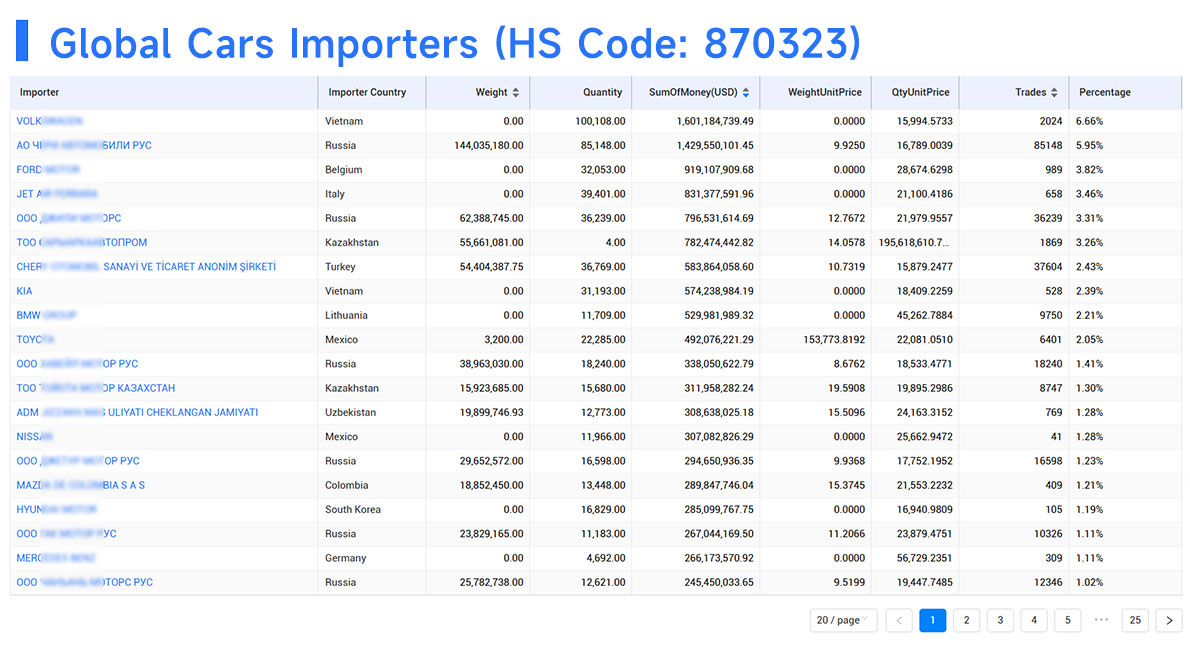
Step 2: Extract Decision-Makers' WhatsApp Numbers
Once you've found companies through global trade data, the next step is to dig deeper and find the decision-makers—purchasing managers, directors, or CEOs. Using platforms like Tendata, LinkedIn, or professional directories, you can often uncover:
·Their WhatsApp numbers
·Emails
·Social media profiles (LinkedIn, Facebook, etc.)
Label and organize your contacts to keep your outreach focused and strategic.
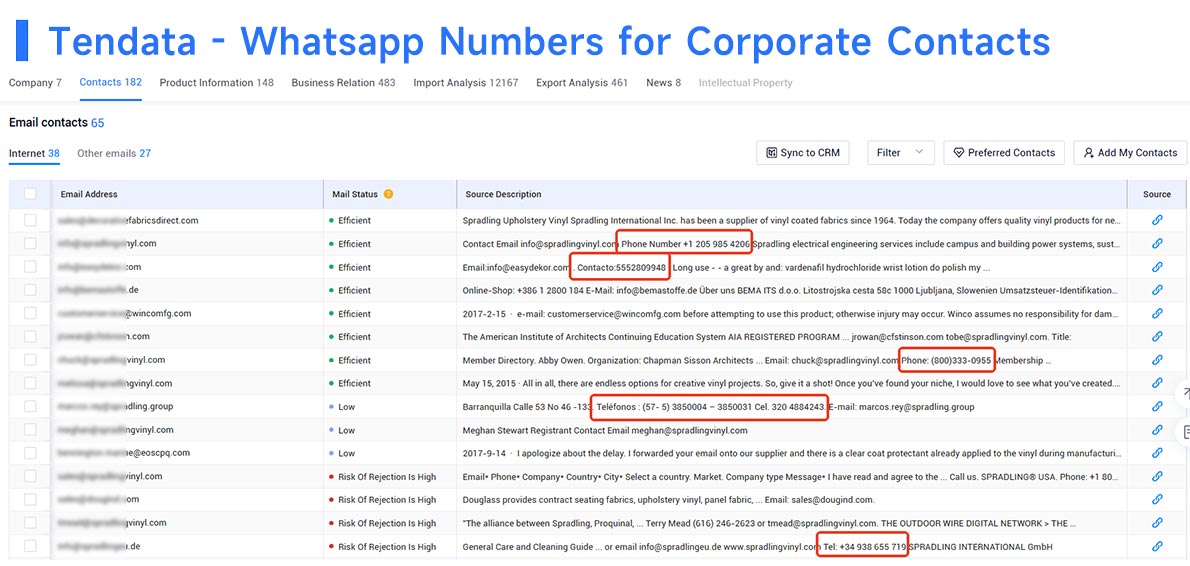
Step 3: Personalize Your Message Using Trade Insights
Here's where your competitive edge kicks in.
With global trade data, you can analyze each client's:
·Import history
·Target products and HS codes
·Current or past suppliers
·Import frequency and volume
·Preferred sourcing regions
Armed with these insights, you can craft personalized messages like:
“Hi John, I noticed your company has been importing stainless steel pipe fittings from China over the past 6 months. I specialize in the same product with competitive pricing and shorter delivery times. Would you be open to discussing possible cooperation?”
This is specific, relevant, and value-driven—and much more likely to start a meaningful conversation than generic outreach.
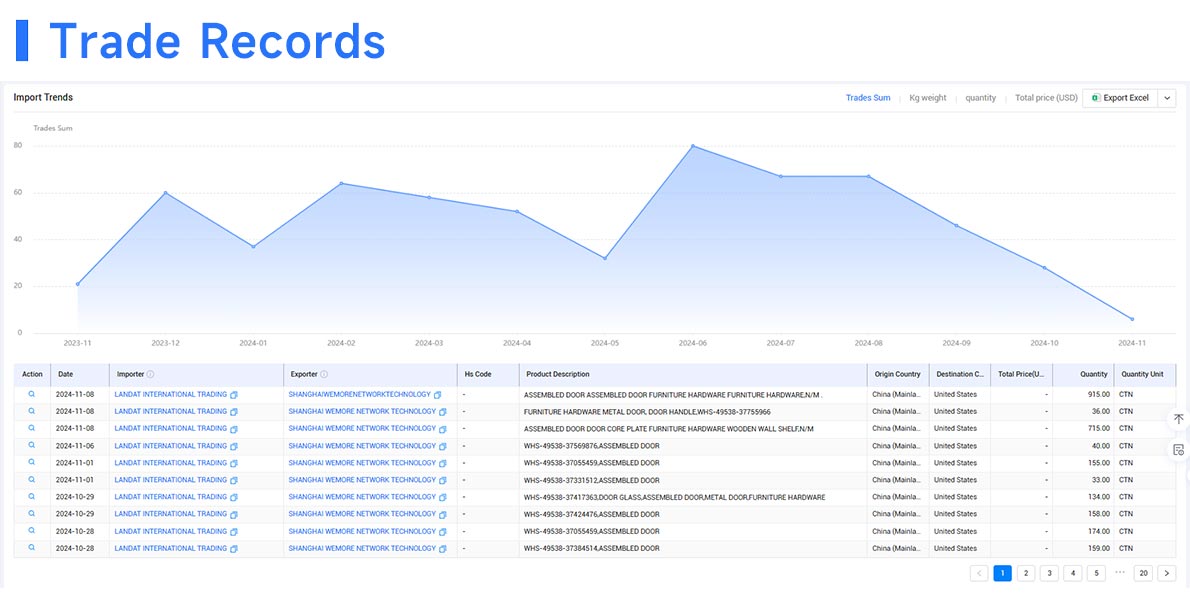
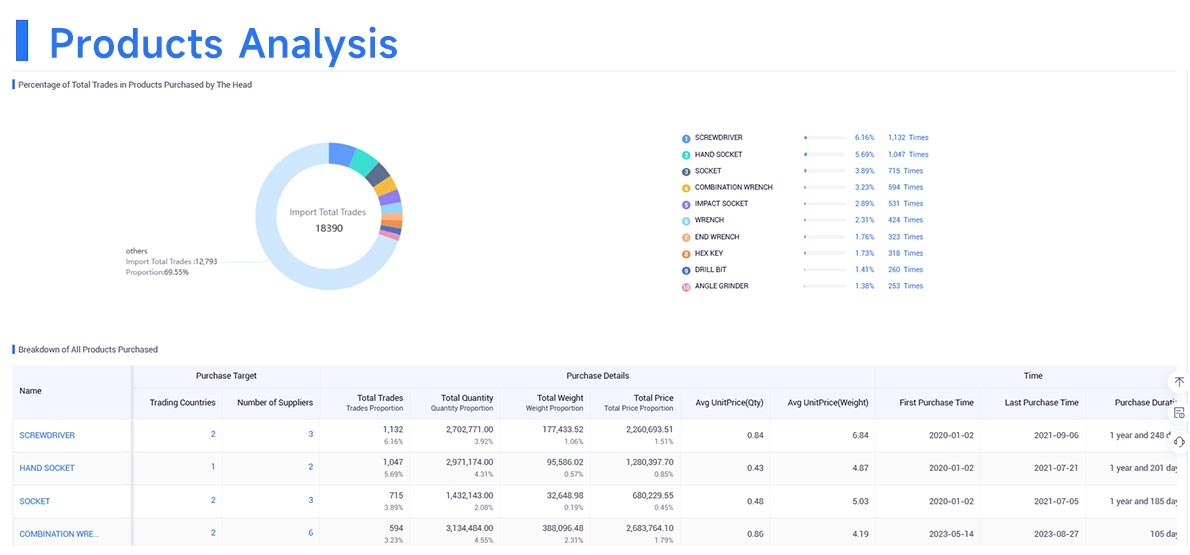
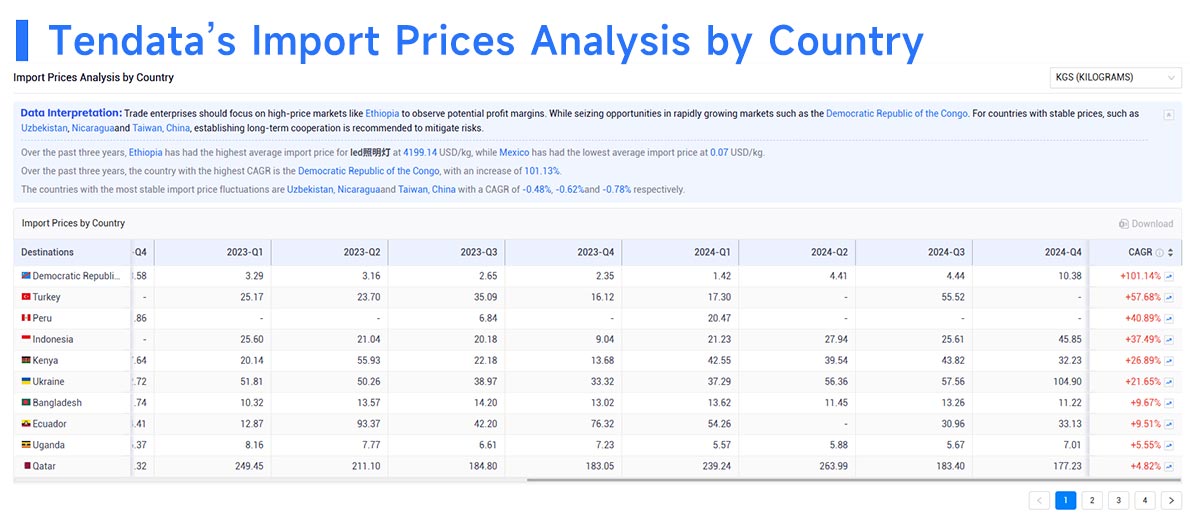
Step 4: Use WhatsApp for Fast, Human Interaction
Now that you've identified the right contact and crafted a personalized message, send it via WhatsApp. If they don't reply right away, follow up after a few days.
Use voice notes or quick video intros to build trust and show you're a real person behind the message.
When the time is right, move the conversation to a WhatsApp call to answer questions, share documents, or walk through product samples in real time.
Conclusion
In today's competitive global trade landscape, it's not about reaching more people—it's about reaching the right people, with the right message, at the right time.
By combining global trade data with WhatsApp, you can target real, high-potential buyers, create personalized connections, and dramatically increase your success rate in developing import-export clients.
Forget mass emails. Forget cold outreach. It's time to go smarter, not louder.
Category
Leave Message for Demo Request or Questions


 T-info
T-info T-discovery
T-discovery

 My
Tendata
My
Tendata Market Analysis
Market Analysis Customer
Development
Customer
Development Competitor
Monitoring
Competitor
Monitoring Customer Relationship
Customer Relationship





































































































































